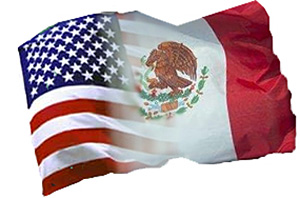Veterans Day, November 11th, originally marked the armistice to end World War I, which took effect on the eleventh hour of the eleventh day of the eleventh month of 1918 (November 11th, 1918). It was thus originally called "Armistice Day."
In Canada, the UK, Australia and New Zealand, it is now called "Remembrance Day," and now honors all the fallen military personnel of those countries. In the United States it's now called "Veterans Day" and honors all veterans, alive or deceased.
On March 4th, 1865, about six weeks prior to his assassination, President Abraham Lincoln concluded his inaugural address with an exhortation to, among other things, care for the veterans: With malice toward none, with charity for all, with firmness in the right as God gives us to see the right, let us strive on to finish the work we are in, to bind up the nation's wounds, to care or him who shall have borne the battle and for his widow and his orphan, to do all which may achieve and cherish a just and lasting peace among ourselves and with all nations.
Meetings its obligations to our veterans, especially those who have been wounded in the service of our country, is one of the responsibilities of our federal government. These obligations should be honored regardless of the economic and budgetary decisions which might be made. Hopefully, all political factions can agree on that.
Many veterans now reside outside of the United States. According to the U.S. Department of Veteran Affairs' website:
Some U.S. military Veterans may live outside of the United States after their discharge from the military. This might include Veterans working at American embassies and consulates abroad, those who work for multi-national companies, or those who do so by choice for family reasons. Regardless of your particular circumstances, most VA benefits are payable regardless of your place of residence or nationality. The application process and receipt of benefits may differ somewhat from Veterans who live within the U.S.
Mexico has the biggest contingent of Americans residing outside the U.S.A., and there are veterans among them.
In fact, according to Veterans Today "Mexico is the number one retirement destination for U.S. Veterans outside of the USA by far with the vast majority living in the greater Guadalajara area specifically in Ajijic on Lake Chapala." The American Legion, a U.S. veterans organization, has 12 posts (local chapters) in Mexico.
In a 2008 column on the Banderas News website, entitled Retired Veterans Choosing Puerto Vallarta, U.S. Marine Vietnam veteran David Lord describes his own experience traveling from Puerto Vallarta to the U.S. border by car:
"I usually drive from Puerto Vallarta to Laredo where I cross the border, it takes twenty hours over greatly improved roads. I pass through the four military check points without incident, I see the military soldiers searching the big rigs and small trucks alike, even passenger cars get searched, and on occasion I am asked to step out and allow the soldiers to review the interior of my car."
While passing through such checkpoints, Lord does not hide the fact that he's a U.S. veteran. In fact, he has made it known and has received good results for having done so:
"I usually make the fact known that I am retired military or a veteran and show one of my ID cards, this always brings a degree of respect and courtesy into the process. The Viet Nam Veteran is always given a special respect as most of the Mexican Military know the war from movies, so never hesitate to show even your V.A. card, it is as close as you get to a free pass card, even if you have little Spanish speaking ability."
I thought that was interesting about the ID card and the reaction to it.
Happy Veterans Day to all U.S. military veterans, wherever they may reside! Allan Wall is an American citizen who recently moved back to the U.S. after living and teaching English in Mexico for a decade and a half. Today, he continues to write articles about various aspects of Mexico and Mexican society. Some of these articles are about Mexico's political scene, history and culture, tourism, and Mexican emigration as viewed from south of the border, which you can read on his website at AllanWall.info.
Allan Wall is an American citizen who recently moved back to the U.S. after living and teaching English in Mexico for a decade and a half. Today, he continues to write articles about various aspects of Mexico and Mexican society. Some of these articles are about Mexico's political scene, history and culture, tourism, and Mexican emigration as viewed from south of the border, which you can read on his website at AllanWall.info.



